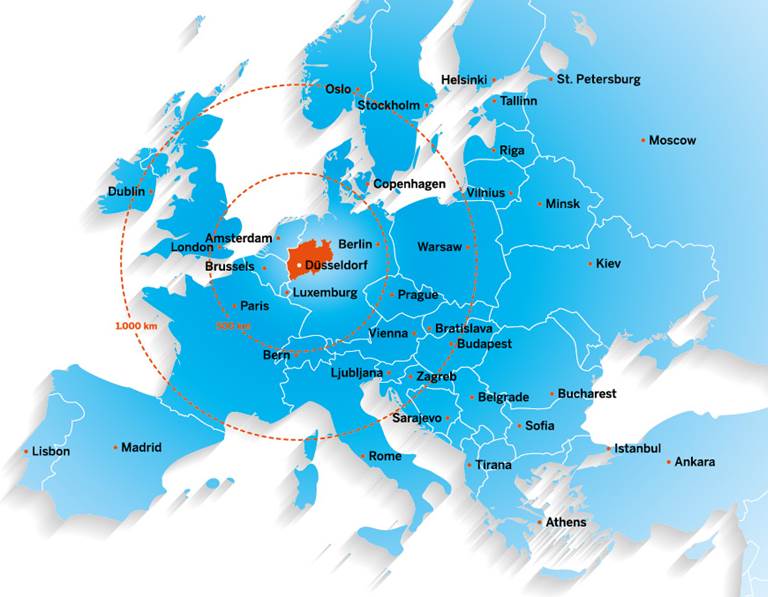Medtech in Germany Remains Strong and Steady

Germany has long been a major economic player in the international medical device industry. Behind the United States and Japan, it is the third largest market for devices worldwide, although imports supply about 70% of the market, according to Research and Markets. Oliver Lehmkühler, Ph.D., manager of the cluster Innovative Medicine, North Rhine-Westphalia (NRW), one of the largest regions in Germany, offers an update on the region’s development, which remains strong despite the rise of surrounding economies, including Asia.
MedTech Intelligence: What are the latest figures on medtech expansion in western Germany?
Oliver Lehmkühler: Medtech is still a growing industry in Germany. Overall turnover was €25.19 billion in 2014 compared to €24.62 billion in 2013, with an import-export ratio of 32–68%. While growth is somewhat slight, it remains steady, which is a good sign for medtech business performance.
MTI: Are there specific therapeutic areas that are stronger in this region?
Lehmkühler: In NRW [North Rine-Westphalia], we are very strong in cardiovascular diagnostics and therapy, neuro-rehabilitation, IT-applications like telemedicine and telemonitoring, PACS solutions (picture archive and communication systems), and decision-support systems. Another prominent field is bio-hybrid systems where technical and biological components are combined as hybrid implant solutions for cardiovascular deficiencies or cartilage defects.
MTI: What incentives does the region offer medtech companies in terms of establishing manufacturing and/or distribution there?
Lehmkühler: NRW is differentiated by its dense population and prestigious healthcare clinics. It’s a hot spot for medical research and development supported by nearby university programs in engineering and natural science. These programs as well as non-university research institutes like Fraunhofer Institutes and Max Planck Institutes are part of an SME [small- and medium-size enterprise] network, connecting innovations, companies and people from various fields. The network builds on R&D and cooperation along the value chain to develop truly innovative solutions. Foreign companies who establish manufacturing businesses in NRW are all entitled to the same benefits as German natives.
MTI: From your perspective, what are the most competitive regions in medtech within Europe? What factors play a role?
Lehmkühler: With the presence of Siemens, Bavaria has a special focus in diagnostic imaging technologies and implants. Switzerland is well known for its network of medtech supplier companies, and [The] Netherlands is the home to Philips, the internationally known technology company. However, most of Germany’s medtech business in Germany is made by SMEs. These companies benefit from highly educated staff, and good basis of research and development from partnering universities. These factors create strong advantages from NRW’s medtech and life sciences sectors.
MTI: What are your growth projections for this region over the next year?
Lehmkühler: Over the next year, we expect a business increase for Germany and NRW. There is high demand for innovative medical solutions, especially with great demographic change in the healthcare system. We expect a high demand for innovative IT-solutions and chronic-disease treatments, triggering new-product development. Cutting costs will be vital, fostering medical solutions that aim for higher cost efficiency.